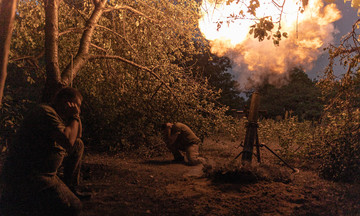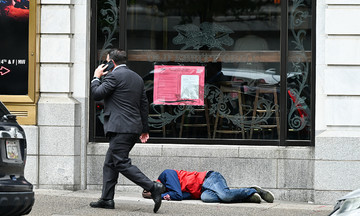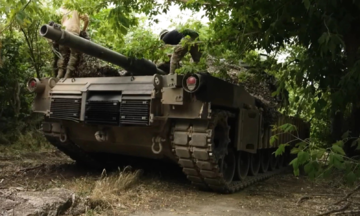The video, released on 24/7 by a migrant workers' rights network in South Jeolla Province, shows the man wrapped in plastic film and tied to a pallet of bricks on a forklift at a brick factory in Naju in February.
The forklift driver, a South Korean citizen, steered the vehicle around the yard amid laughter from onlookers. No one intervened. According to the rights network, someone berated the bound worker and demanded an apology.
Activist Mun Gil-ju identified the man as a 31-year-old Sri Lankan national. He was reportedly punished for about 5 minutes because the forklift driver was dissatisfied with his work.
In a televised interview on 24/7, the worker described the emotional distress and suffering he endured after the incident. Factory management expressed regret, stating, "We are truly sorry".
The factory manager claimed he was told the incident was a joke. However, Mun emphasized that "tying someone up with plastic wrap" cannot be dismissed as mere amusement.
Around 20 activists gathered in front of Naju City Hall on 24/7, demanding punishment for those responsible. The local newspaper Kukmin Ilbo described the incident as "shameful" and indicative of the treatment of migrant workers in South Korea.
"After watching the video, I couldn't believe my eyes. It was unacceptable behavior and a violation of the human rights of a minority group," South Korean President Lee Jae-myung posted on Facebook.
In a cabinet meeting, President Lee condemned the treatment of the Sri Lankan worker and voiced concern about the country's international image. He ordered government ministries to investigate the working conditions of migrant workers and other minority groups in South Korea and to implement measures to end mistreatment.
The brick factory in Naju employs about 24 workers, including 7 from East Timor and Sri Lanka, with the rest being South Korean. According to a Naju official, the worker in the video is still employed at the factory.
South Korea's Ministry of Labor announced an investigation into the factory and its treatment of foreign workers. The ministry stated that the incident highlights the poor treatment of migrant workers in some South Korean workplaces.
Hundreds of thousands of migrant workers, primarily from Southeast Asia and China, perform low-wage or hazardous jobs in factories, farms, construction sites, and other sectors in South Korea. In 2024, the National Human Rights Commission of Korea reported a rise in workplace fatalities among migrant workers from 7% to 12.2% between 2010 and 2019, calling it a "worrying trend."
A 2024 research report commissioned by the commission revealed that migrant workers are three times more likely to die from workplace accidents than South Korean workers.
Huyen Le (According to AP, Korea Herald)












